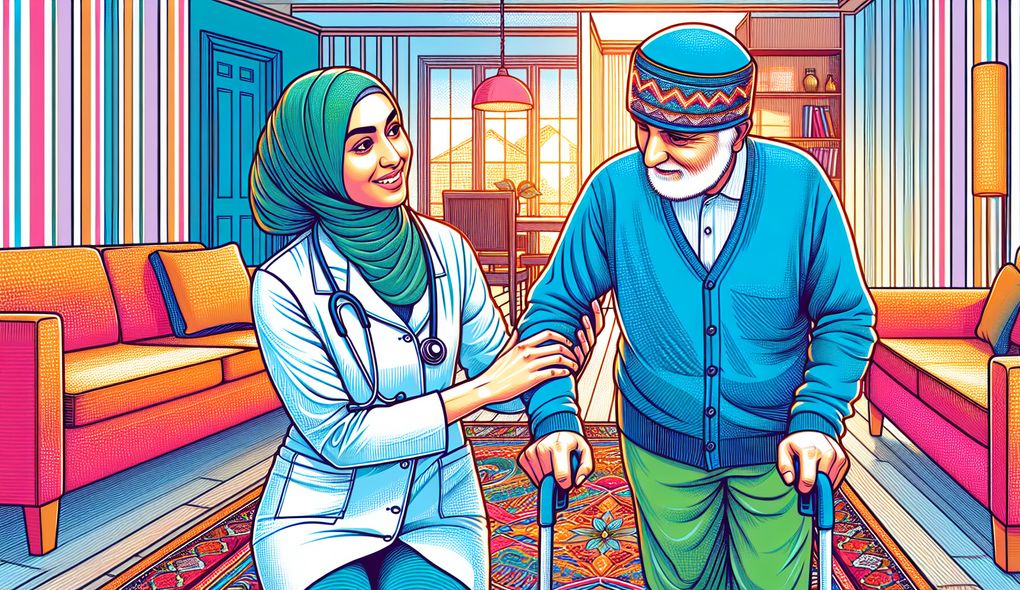How do you ensure patient confidentiality and privacy?
INTERMEDIATE LEVEL

Sample answer to the question:
As a home health aide, ensuring patient confidentiality and privacy is of utmost importance to me. I always respect the privacy of each patient by maintaining a professional and discreet approach. I make sure to keep all patient information confidential and secure. This includes not discussing patient information with anyone who is not directly involved in their care, whether it's friends, family, or colleagues. Additionally, I am diligent in following all HIPAA regulations and guidelines. I understand the significance of protecting patient information, as it builds trust and ensures their well-being.
Here is a more solid answer:
As a seasoned home health aide, I have developed a robust approach to ensuring patient confidentiality and privacy. I always prioritize building trust with my patients by maintaining a compassionate and non-judgmental attitude. I strictly adhere to the principles of patient confidentiality, so all personal and medical information remains strictly confidential. To further protect patient privacy, I follow strict protocols, such as making sure that all electronic devices containing patient information are password-protected and encrypted. I also avoid discussing patient information in public or with unauthorized individuals. Additionally, I am well-versed in HIPAA regulations and guidelines and ensure that all necessary measures are in place to maintain compliance. I undergo regular training to stay up-to-date with the latest developments in patient privacy and security practices.
Why is this a more solid answer?
The solid answer provides more specific details about the candidate's approach to patient confidentiality and privacy. It highlights the candidate's emphasis on building trust and maintaining strict protocols to protect patient information. It also mentions the candidate's knowledge of HIPAA regulations and commitment to staying updated through regular training. However, the answer can still be improved by including examples or specific situations where the candidate successfully ensured patient confidentiality.
An example of a exceptional answer:
Ensuring patient confidentiality and privacy is a top priority in my role as a home health aide. I understand that patients trust us with their personal and medical information, and it is our responsibility to protect it. I have implemented several measures to maintain patient confidentiality, such as using secure computer systems with strong passwords and regularly changing them. I strictly follow the 'need-to-know' principle, only accessing patient information when necessary to provide care. I also exercise caution when discussing patient details, ensuring that conversations are held in private and away from unauthorized individuals. In one instance, I encountered a situation where a family member asked me about a patient's medical condition. I politely explained that I could not disclose any information without the patient's consent, emphasizing the importance of respecting patient confidentiality. By doing so, I maintained trust and reinforced the patient's belief that their information was safe with me. To stay updated on HIPAA regulations, I actively participate in workshops and online courses to enhance my knowledge and understanding of patient privacy and security practices.
Why is this an exceptional answer?
The exceptional answer demonstrates the candidate's thorough understanding and implementation of measures to ensure patient confidentiality and privacy. It includes specific examples of how the candidate handled a situation where patient information was requested by a family member and successfully maintained patient confidentiality. The answer also highlights the candidate's commitment to continuous learning and staying updated on HIPAA regulations. This level of detail and real-life examples make the answer exceptional.
How to prepare for this question:
- Familiarize yourself with HIPAA regulations and guidelines to understand the importance of patient confidentiality and privacy.
- Reflect on past experiences where you successfully ensured patient confidentiality and privacy.
- Be prepared to provide examples or situations where you had to navigate patient confidentiality and privacy challenges.
- Consider the 'need-to-know' principle and how it can be applied in different scenarios to protect patient information.
What are interviewers evaluating with this question?
- Patient confidentiality
- Privacy protection
- HIPAA compliance

